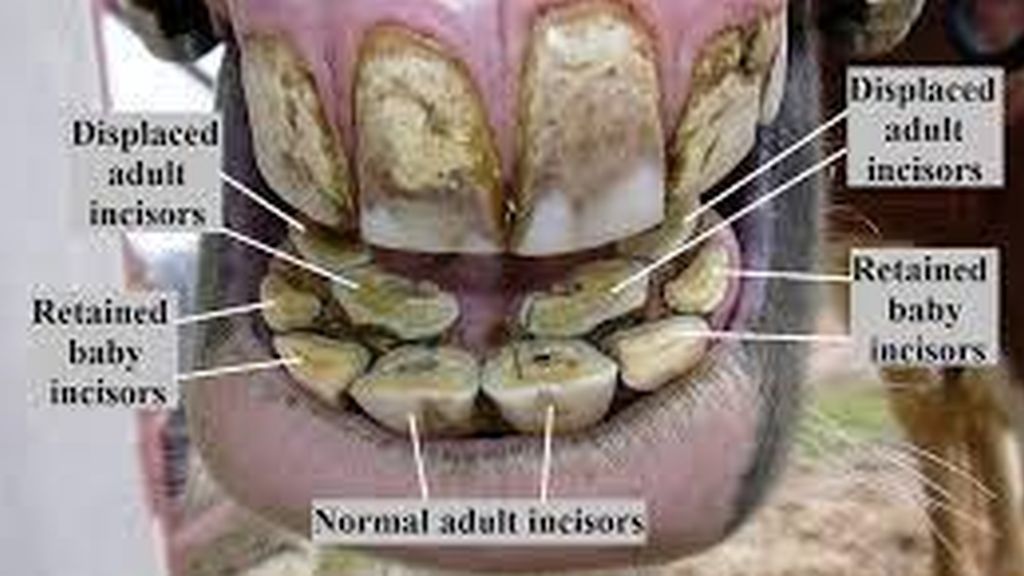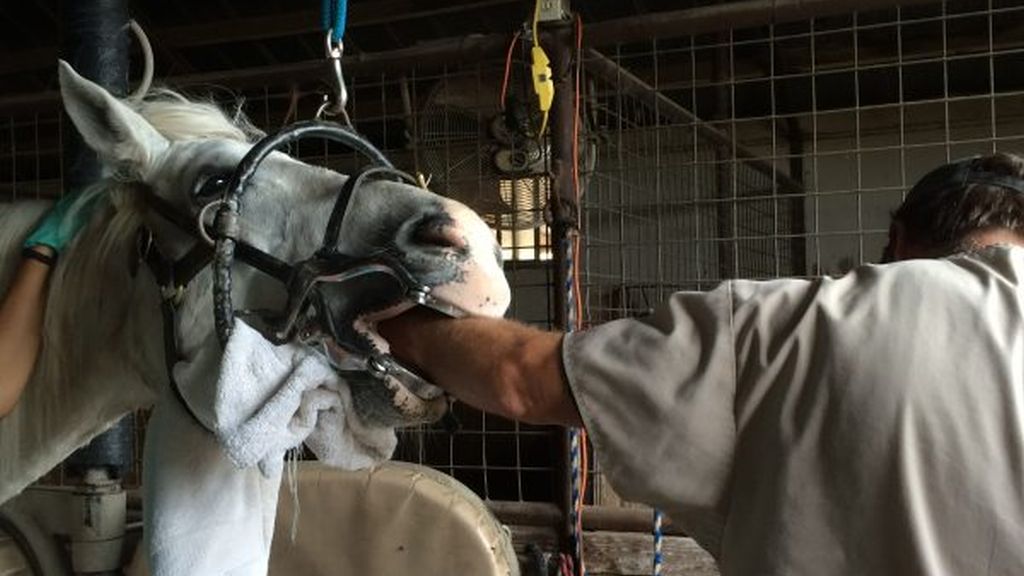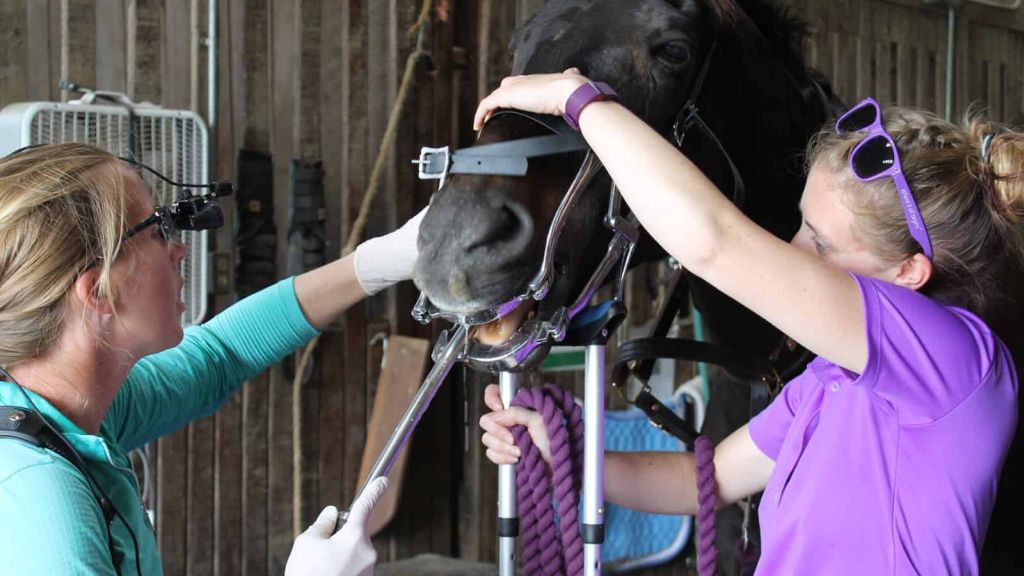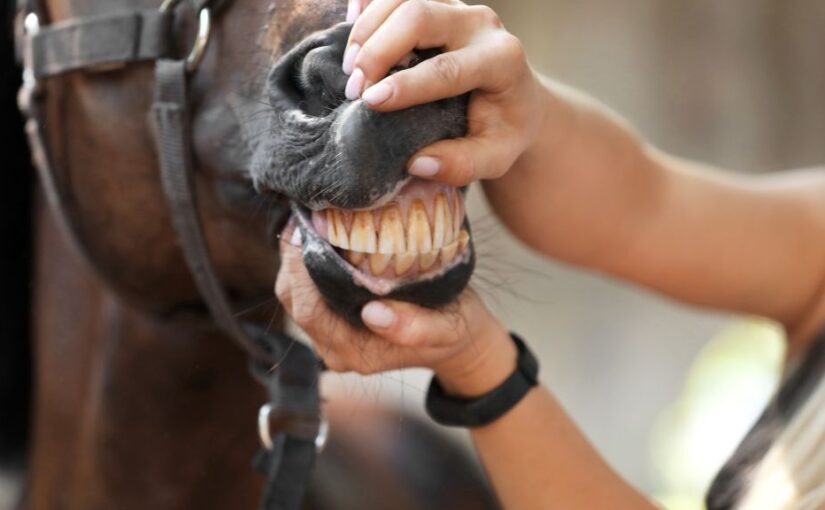Equine dentistry is a vital aspect of horse health and welfare. A horse’s dental care directly impacts its overall well-being, performance, and ability to eat comfortably. Among the various dental structures in horses, incisors play a crucial role in their oral health. In this article, we will explore the significance of incisors in equine dentistry, their anatomy, common issues, and the importance of regular dental check-ups and maintenance.
Anatomy and Function of Equine Incisors
Equine incisors are the front teeth in a horse’s mouth, located at the front of both the upper and lower jaw. Adult horses typically have a total of twelve incisors – six on the top and six on the bottom. These teeth are classified into three pairs on each side: the central incisors, intermediate incisors, and corner incisors.
The incisors are primarily responsible for cutting and grasping food. Horses use their incisors to bite off grass, hay, and other forage before further chewing it with their molars. Healthy incisors are essential for efficient mastication and digestion, as improper incisor function can lead to inadequate breakdown of food, resulting in nutritional deficiencies.
Age-Related Changes in Incisors
The condition of a horse’s incisors changes as it ages, and these changes are valuable indicators for estimating a horse’s age. For instance, young horses possess deciduous incisors (baby teeth), which eventually fall out to make way for permanent incisors. By observing the wear, eruption, and shape of incisors, equine veterinarians and dental professionals can approximate a horse’s age.
As horses age, their incisors undergo natural wear, becoming shorter and smoother over time. This wear pattern helps veterinarians assess a horse’s dental health, as excessive or uneven wear may indicate dental issues that require attention.
Common Incisor Dental Issues
Several dental issues can affect a horse’s incisors, compromising its oral health and overall well-being. One common problem is the development of sharp edges or points on the incisors. These sharp points can occur due to the grinding motion of the horse’s jaw and can cause discomfort and pain while eating. Regular dental check-ups and filing, also known as floating, are essential to address and prevent such issues.

Another prevalent dental problem is the presence of diastemata, which are gaps between adjacent incisors. Diastemata can trap food particles and lead to periodontal disease if left untreated. Regular dental examinations can help detect diastemata early and facilitate appropriate treatment.
Impact on Eating Behavior and Overall Health
A horse’s eating behavior can be significantly affected by incisor issues. Dental problems, such as sharp points or diastemata, can cause discomfort and pain while chewing, leading to reduced food intake, slow eating, or even outright refusal to eat. Consequently, malnutrition, weight loss, and poor body condition may develop.
In addition to the direct impact on eating behavior, dental issues can also result in behavioral changes. Horses experiencing dental discomfort may exhibit head tossing, reluctance to be bridled, or other resistance during riding and handling. Timely dental care and addressing incisor issues can help restore a horse’s eating comfort and overall behavior.
Dental Examinations for Early Detection
Regular dental examinations are essential for maintaining a horse’s oral health and identifying dental issues early on. Equine veterinarians and qualified dental professionals should perform these examinations at least once a year, and more frequently for younger horses or those with known dental issues.
During a dental examination, the practitioner will use specialized tools and a dental mirror to assess the condition of the horse’s incisors and other dental structures. Any abnormalities, such as sharp points, diastemata, or signs of tooth decay, can be identified and addressed promptly.
Early detection of dental problems is crucial in preventing their escalation into more significant issues. Addressing dental issues in their early stages helps avoid potential complications and discomfort for the horse. Regular dental check-ups provide an opportunity for timely intervention and contribute to a horse’s overall health and well-being.
Floating and Corrective Procedures
Floating, or filing, is a standard dental procedure performed on equine incisors and molars to remove sharp edges or points and achieve a more even tooth surface. The process involves using a dental float, a specialized tool, to smooth out any irregularities on the incisors’ chewing surfaces. Floating not only improves a horse’s eating comfort but also prevents excessive wear on certain teeth and encourages proper mastication.

The floating process should be conducted by skilled professionals, as improper floating can lead to additional dental problems or discomfort for the horse. Equine dentists and veterinarians have the expertise and training to perform this procedure effectively and safely.
In cases of more severe dental issues, corrective procedures may be necessary. This can involve addressing malocclusions, which are misalignments of the upper and lower incisors, or addressing dental abnormalities that may impact the horse’s ability to chew effectively.
Corrective procedures require careful planning and execution to achieve the desired results without causing additional harm to the horse’s dental structures. Equine dental professionals can assess the situation and recommend the appropriate corrective measures to improve the horse’s oral health.
Dental Care and Overall Health
Proper dental care is closely linked to a horse’s overall health and well-being. Dental problems can cause pain, discomfort, and difficulty in eating, leading to malnutrition, weight loss, and reduced performance. Neglecting dental health can also contribute to the development of more severe conditions, such as periodontal disease, which can affect the gums and supporting structures of the teeth.
Regular dental check-ups and maintenance help prevent such issues, ensuring that a horse’s incisors and other dental structures remain healthy and functional. By promoting good oral health, horse owners can enhance their equine companion’s overall quality of life.
Dental issues can have far-reaching consequences beyond oral health. Difficulty in chewing and consuming adequate nutrients can result in poor body condition, reduced energy levels, and compromised immune function. These factors can ultimately affect a horse’s performance, stamina, and overall ability to lead a healthy and active life.
Partnering with Equine Dental Professionals
To ensure proper dental care for their horses, owners should seek the services of qualified equine veterinarians or dental professionals. Equine dentistry requires specialized training and knowledge of a horse’s dental anatomy and behavior. Experienced professionals can conduct thorough dental examinations, perform necessary procedures, and provide tailored advice for a horse’s dental care.
In addition to professional care, horse owners can play an active role in their horse’s dental health by maintaining a nutritious diet, providing regular dental check-ups, and being attentive to any changes in eating behavior or performance.

Equine dental professionals can educate horse owners about proper dental care and recommend appropriate dietary choices to support oral health. Additionally, they can provide insights into specific dental issues that may be affecting a particular horse and suggest personalized care plans.
The role of incisors in equine dentistry is crucial for a horse’s overall health and well-being. Understanding the anatomy and function of equine incisors, as well as recognizing common dental issues, empowers horse owners to prioritize dental care and seek timely professional attention when necessary. Regular dental check-ups and maintenance, including floating and corrective procedures, are essential in ensuring that a horse’s incisors and other dental structures remain healthy and functional. By partnering with qualified equine dental professionals and staying attentive to their horse’s dental health, owners can contribute to their equine companion’s comfort, performance, and overall quality of life. A proactive approach to dental care not only enhances a horse’s oral health but also contributes to its overall well-being and ability to lead a healthy and active life.
